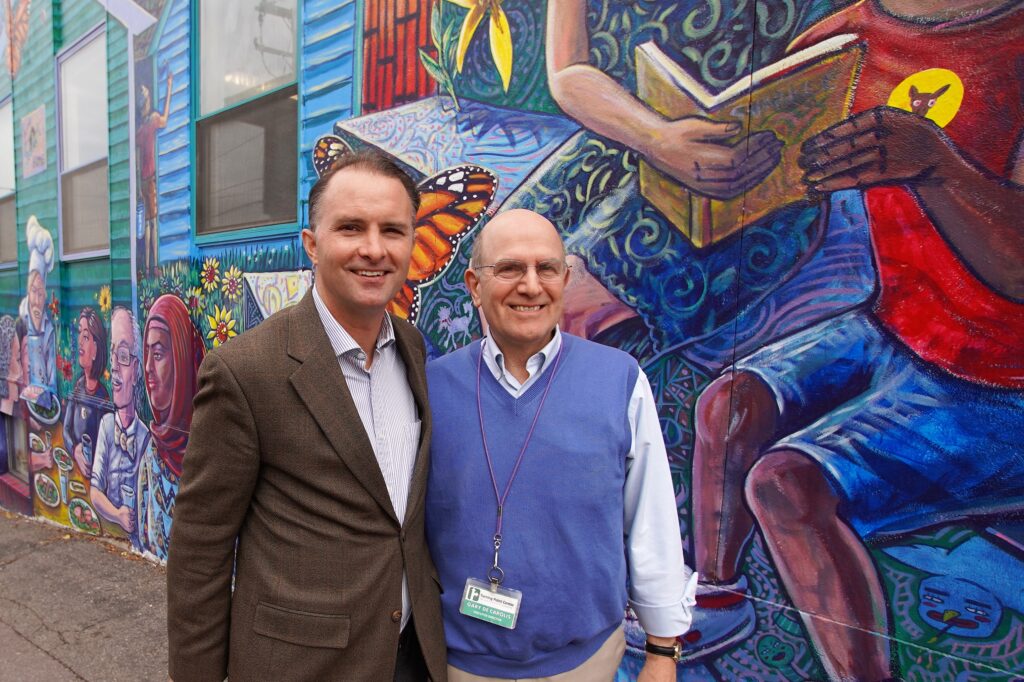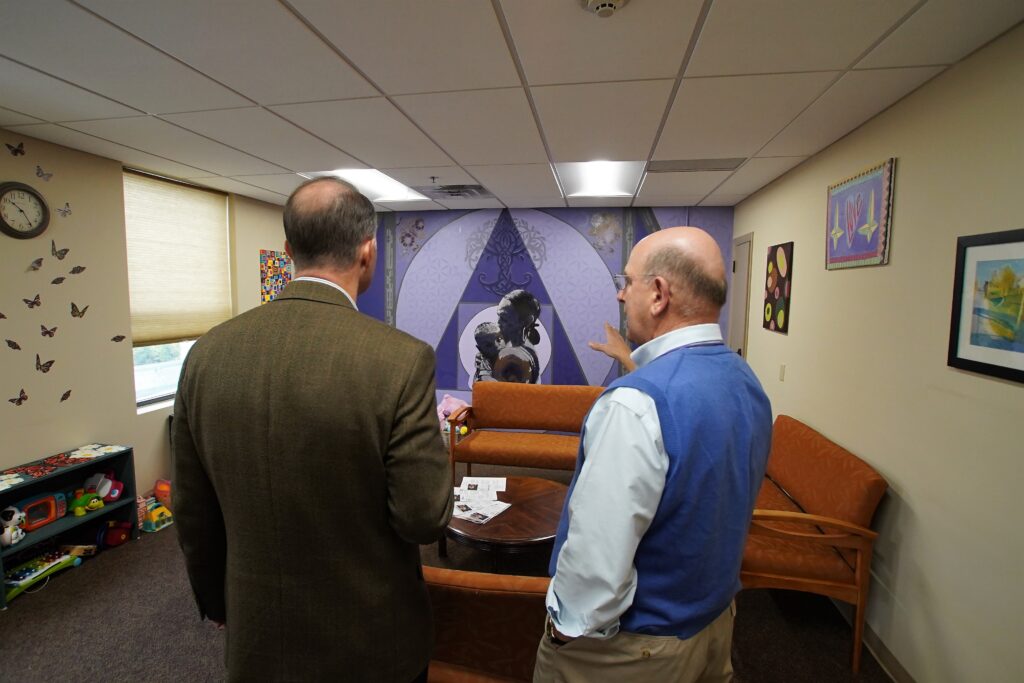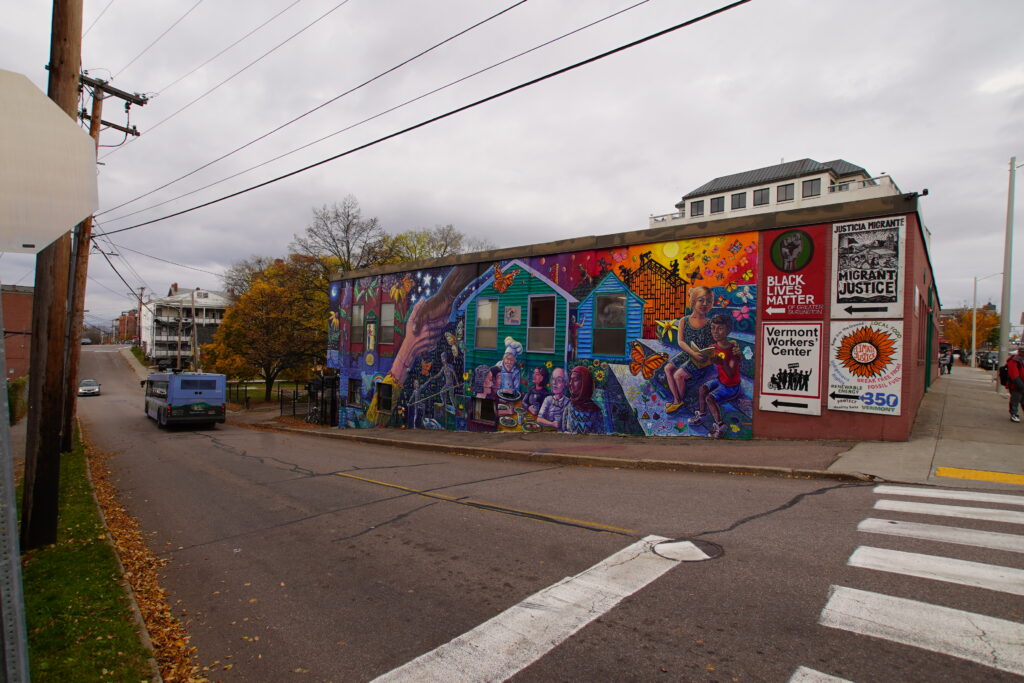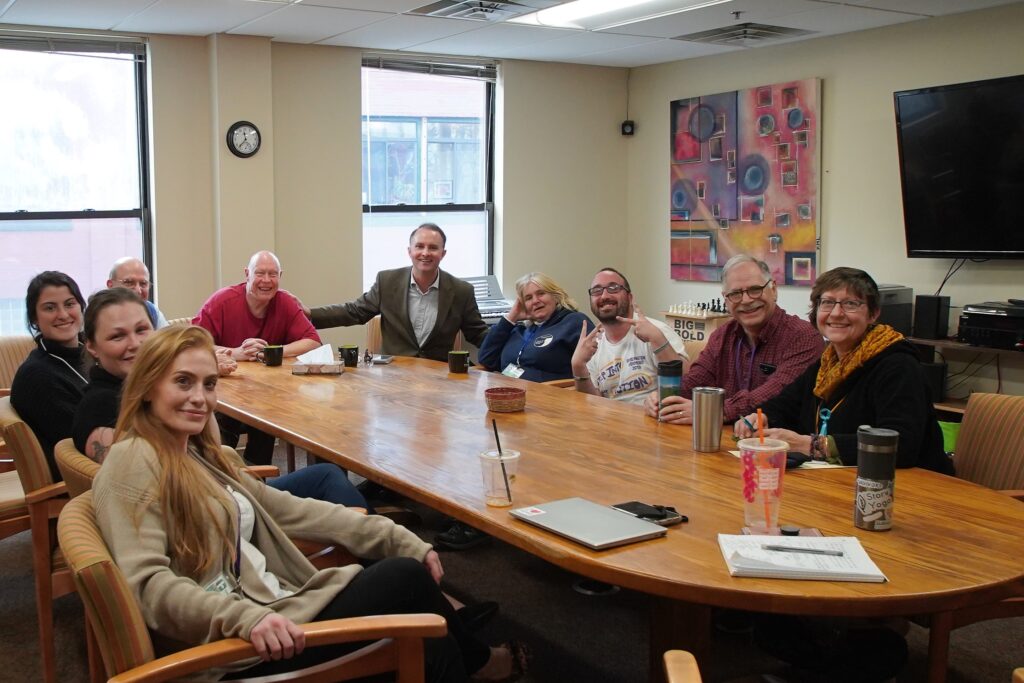
This is a monthly series in which the Attorney General will feature a Vermonter doing exemplary work in their community. Have someone you think should be featured? Email AGO.CAP@vermont.gov.
When reflecting on his 35+ year career in service to others, Gary De Carolis, Executive Director of the Turning Point Center of Chittenden County, said, “I’ve had a blessed career.” But the way we see it, Vermont has been blessed to have Gary serving as an advocate and leader in the fields of mental health and substance abuse. That’s why Gary De Carolis is our October Vermonter of the Month.
Over his career, Gary has served as a mental health counselor, children’s mental health professional, the Deputy Commissioner of the Vermont Department of Mental Health, the Chief of Children’s Mental Health at the Center for Mental Health Services within the Substance Abuse and Mental Health Services Administration (SAMSHA), and a consultant focusing on how best to serve children in custody in the context of their family and community.
Today, Gary serves as the Executive Director of the Turning Point Center of Chittenden County where he has transformed the Center from a staff of three with a budget of $175,000 to its current staff of 15 with an annual budget over $700,000. Under his leadership, the Turning Point Center has expanded its footprint and broadened its scope of services to better serve Vermonters seeking recovery. On average, the Turning Point Center serves about 3,000 visiting guests each month.
Gary gave us a tour of the Turning Point Center’s new location on South Winooski Avenue in Burlington and talked with us about his work as an advocate and counselor:
- What inspires you, or drives your passion for your work with the Turning Point Center?
I’m inspired by the people who walk through our door every day. Talented, bright, courageous people. I’m in awe of them. To know that you live with a disease that you must be perfect with—one errant drink, one puff on a joint, or one pain killer for a broken limb—can set you into a spiral that could last for years. Courage doesn’t begin to speak to the incredible strength that I’ve witnessed for some 7 years now.
- What is the most rewarding aspect of your work with the Turning Point Center?
What I find most rewarding is to see someone walk through our doors with a sense of little hope for a better life and over the weeks and months watch as they grow in strength to the point where the light of hope glows in them. It happens almost every day here. Providing a safe space, filling it with people in recovery to support our guests, and enriching it all with wonderful services are the ingredients for miracles to happen.
- What is the most challenging aspect of your work with the Turning Point Center?
What is hard is when someone is so overwhelmed with their life that it is hard, if not impossible, for them to focus on their recovery. Lack of housing probably is the biggest determinate in keeping someone in the cycle of active drug use. Also, trauma histories can be so difficult to work though. We constantly recommend therapy as a part of someone’s early recovery so that trauma doesn’t end up being the boulder in their recovery path.
The other challenge, that is a part of all non-profits, is raising enough funds to make all of this work! Our staff works very hard and deserves a decent income with benefits. We have come a long way from when I began 7 years ago but we still need to go further.
- The Turning Point Center of Chittenden County has grown under your leadership. What are some of the changes?
We’ve placed recovery coaches in the emergency department at the University of Vermont Medical Center, and created a New Moms in Recovery Program for women seeking sobriety and maintaining custody of their children. We also have a wonderful Employment Consulting Program to make sure that all our guests who want to work get a job. All these efforts have had tremendous success. We have a wonderful team of recovery support specialists that greet each guest when they enter the Center to ask them how they are doing in their recovery, what we can do to support them and make referrals to other agencies for services. Finally, we have an elite team of 15 recovery coaches that are available for anyone who wants a more intimate relationship with someone in recovery as they go through their unique recovery journey.
- What do you want Vermonters to know about recovery? Do you feel there is stigma that needs to be confronted?
I want all Vermonters to know that recovery is not only possible, but that it happens every day. Please take the time to get to know someone in recovery. Listen to their story. Ask questions. I know you will come to see, as I have, that people in recovery are amazing, insightful, and determined people who we are fortunate to have as family, friends and neighbors. They are gentle, but tough souls and we are better for them being in our lives.
- What advice do you have for other Vermonters looking to make an impact in their community?
This is always a tough question for me. We are grateful for the many people who donate to our Center. It is so helpful in allowing us to offer all the services we do. Also, recently we finished a capital campaign to buy our first building and renovate our space to work as a recovery center. I am so humbled by the community response to our asking for financial assistance. When people walk through our door, they all say this space is so respectful and dignifying. That is what we were aiming for!
For others, I recommend that you use your talent to help broaden people’s understanding of addiction and recovery. Some Vermonters are amazing writers, some our phenomenal artists. When I’ve seen those skills unleashed in this field it has transformed people who experience their gifts. I’m thinking of Bess O’Brien’s documentary Hungry Heart or Kate O’Neil’s articles in Seven Days and the obituary she wrote of her sister Maddie who was addicted to opioids. The group Twiddle who write songs about addiction. There are so many ways to help. Serving on our board or various committees of the recovery center is yet another way of helping. I always like Dante’s quote “In times of crisis may the hottest place in hell be reserved for those that declare their neutrality.” Get involved, and make a difference. It does matter.



